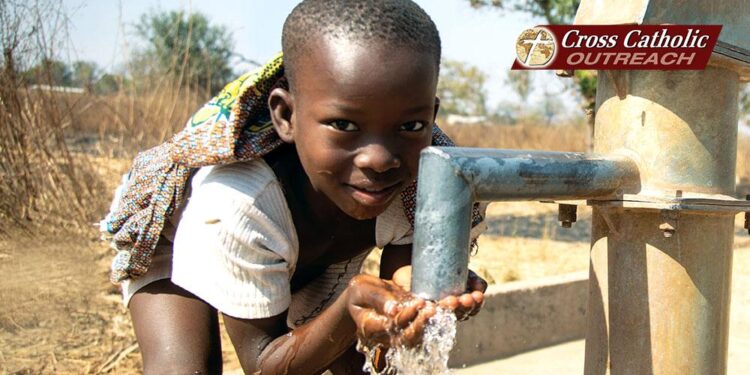The Washington State Department of Ecology has announced plans to fund 102 clean water projects across the state, marking a significant investment in safeguarding and improving local waterways. This initiative aims to address pressing water quality issues by supporting efforts ranging from pollution reduction to habitat restoration. With a focus on enhancing environmental health and community well-being, the funded projects represent a critical step in the state’s ongoing commitment to ensuring access to clean and safe water for all residents.
Ecology Advances Major Investment to Improve Statewide Water Quality
The Washington State Department of Ecology is set to distribute funds to 102 innovative clean water projects spanning urban, rural, and tribal communities statewide. This robust investment aims to tackle pressing water quality challenges by enhancing stormwater management, restoring vital fish habitats, and reducing pollutant runoff into rivers, lakes, and the Puget Sound. Among the initiatives prioritized are green infrastructure developments, septic system repairs, and community-led watershed restoration efforts that promise measurable environmental and public health benefits.
Key focus areas of the funding include:
- Improving water filtration through natural wetlands and riparian buffers
- Upgrading outdated wastewater systems to meet modern standards
- Supporting local engagement and educational programs on water stewardship
- Addressing contamination from agricultural and urban sources
| Project Type | Number of Projects | Estimated Funding ($M) |
|---|---|---|
| Stormwater Upgrades | 38 | 15.2 |
| Habitat Restoration | 27 | 12.8 |
| Septic System Repairs | 22 | 9.5 |
| Community Engagement | 15 | 4.5 |
Targeted Projects Aim to Address Contamination and Restore Aquatic Ecosystems
The Washington State Department of Ecology has identified a range of critical initiatives focusing on the remediation of contaminated waterways and the rejuvenation of aquatic habitats. These projects emphasize strategically targeting pollution sources such as agricultural runoff, legacy industrial waste, and urban stormwater. Through collaborative efforts with local governments, tribal nations, and community groups, the projects seek to improve water quality, protect endangered species, and restore vital natural processes. Key interventions include sediment cleanup, riparian habitat restoration, and installation of green infrastructure to reduce pollutant loads.
Among the slate of funded efforts, several standout initiatives demonstrate innovative approaches and proven effectiveness. Below is an overview of select categories receiving attention and investment:
- Pollution Reduction: Implementation of best management practices to control nutrient and toxin inflows.
- Habitat Enhancement: Reestablishment of native vegetation and fish-friendly stream modifications.
- Community Engagement: Education programs to promote stewardship and sustainable land use.
| Project Focus | Expected Outcome | Estimated Completion |
|---|---|---|
| River Sediment Cleanup | Reduced toxin levels by 30% | 2025 |
| Wetland Restoration | Improved fish spawning habitat | 2026 |
| Stormwater Green Infrastructure | Decreased urban runoff by 25% | 2024 |
Recommendations Emphasize Community Engagement and Long-Term Sustainability
To ensure the success and longevity of the 102 clean water projects, recommendations place strong emphasis on deep-rooted community involvement. Local stakeholders are encouraged to actively participate in planning, implementation, and monitoring phases, fostering a sense of ownership and responsibility. This collaborative approach not only enhances the relevance of each project to its community’s unique needs but also strengthens trust between residents, government agencies, and environmental groups.
Long-term sustainability is further reinforced through strategic guidelines that prioritize:
- Adaptive management: Regular assessment and flexible adjustment of project methods based on evolving environmental data.
- Capacity building: Training local personnel to maintain infrastructure and promote sustainable water practices.
- Financial planning: Securing ongoing funding sources beyond initial grants to uphold operational integrity.
| Key Recommendation | Impact Area |
|---|---|
| Community Workshops | Empowerment & Engagement |
| Sustainability Funding Plans | Project Longevity |
| Collaborative Monitoring | Environmental Accountability |
Future Outlook
The Department of Ecology’s commitment to funding 102 clean water projects across Washington signals a significant step forward in protecting the state’s vital water resources. By allocating these funds, the agency aims to address pollution, restore aquatic habitats, and ensure safe, sustainable water supplies for communities statewide. As these projects move from planning to implementation, residents can expect tangible improvements in water quality and ecosystem health – underscoring Washington’s ongoing dedication to environmental stewardship and public well-being.










